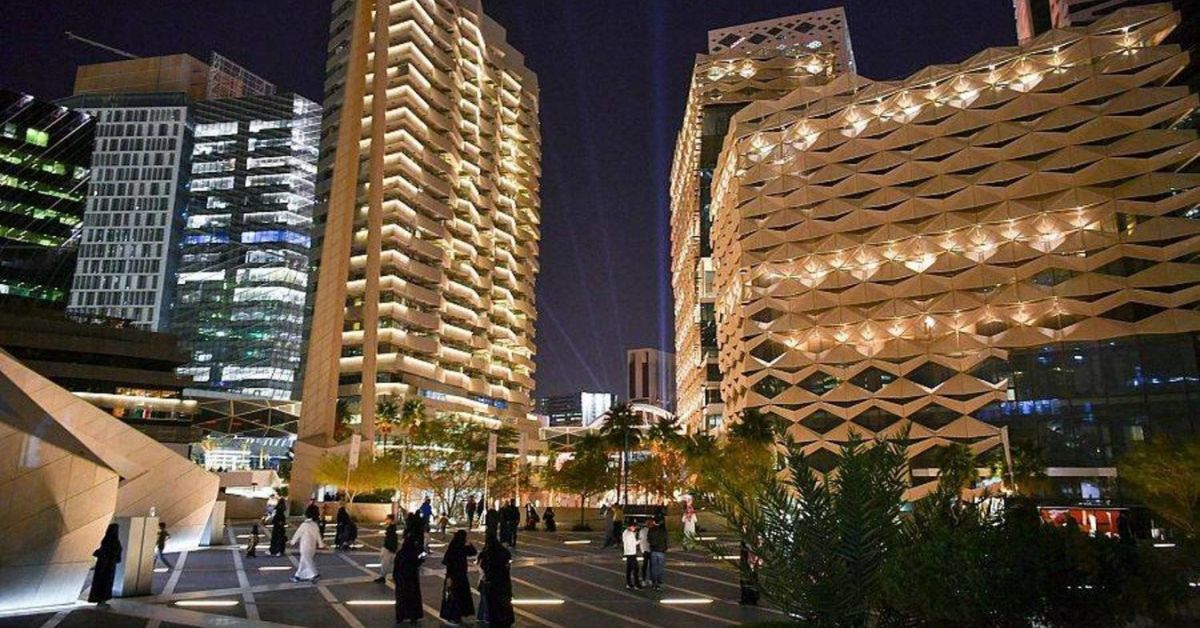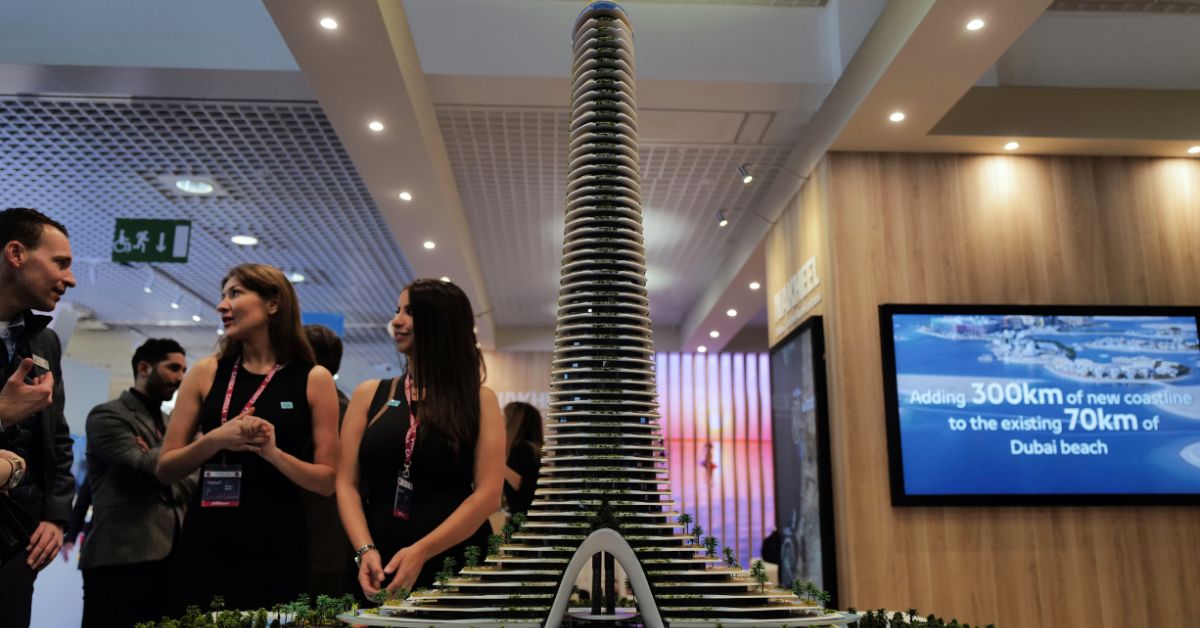ABU DHABI — Real estate sale transactions in the GCC over the first half (H1) of 2023 reached US $90.7 billion, up 9.9 percent year-over-year (y-o-y) from US$82.5 billion in H1 2022, according to a new estimate by Kamco Invest. Dubai’s transactions contributed 54 percent of the region’s total transacted value and were able to offset the decline of other key markets such as Saudi Arabia, Qatar, and Kuwait.
The real estate value transacted in Dubai increased almost 57 percent y-o-y in H1 2023 based on data from DXB Interact. Key drivers were strong pricing and demand for luxury properties for both single-family and multi-family homes. The affordable property segment also witnessed healthy gains.
According to the report, the pace of price and rental growth across residential key markets would moderate further in H2 2023, as typical late-cycle stabilization is witnessed, and supply calibrates to more normalized demand.
Further, the trajectory of mortgage rates and rental affordability should impact end-user ownership trends, especially in markets such as UAE and Saudi Arabia, and determine the future course of residential transaction activity.
The report also revealed that the Refinitiv GCC Real Estate Total Return Index gained by 15 percent, driven by strong performances from Saudi Arabia (+32.2 percent), Dubai (+16.9 percent), and Abu Dhabi (+15.9 percent) RE equity indices. Qatar (-3.6 percent) and Saudi REITs index (-2.3 percent) were major decliners in the regional real estate listed space.
News in numbers * GCC real estate transactions reached $90.7 billion in H1 2023, up 9.9% y-o-y from $82.5 billion in H1 2022. * Dubai's transactions contributed 54% of the region's total transacted value. * Real estate value in Dubai increased by 57% y-o-y in H1 2023. * Refinitiv GCC Real Estate Total Return Index gained by 15%. * Saudi Arabia's RE equity index increased by 32.2%; Dubai's by 16.9%; Abu Dhabi's by 15.9%. * Qatar's RE equity index declined by 3.6%; Saudi REITs index declined by 2.3%. * Dubai's residential prices rose 11.7% in Q2-2023 y-o-y. * Registered prices of off-plan properties in Dubai increased by 6% in Q2 2023; price growth of 17% y-o-y in 2022. * Abu Dhabi's residential price growth was muted at 1% y-o-y at the end of Q1 2023. * Sales prices of villas in Riyadh increased by 5% y-o-y; apartments by 10% y-o-y in Q2 2023. * Jeddah's price growth was 1% to 2% y-o-y. * Dubai's average residential rents jumped 32.6% y-o-y. * Riyadh and Jeddah's apartment rents grew by 4% and 13% y-o-y respectively in Q1 2023. * Other rental markets such as Doha increased by 3.9%; Kuwait by 5% to 6% y-o-y.
The outperformance of the UAE and Saudi equities indices is ascribed to the strong growth in pricing that real estate developers have been able to achieve in their respective markets for their products, with incremental demand outstripping new supply.
Kamco expects the rally to be significantly narrower, and skewed towards companies that possess stronger balance sheets that enable them to achieve higher IRR projects and opportunistic M&A activity. Moreover, headwinds such as higher interest rates and normalizing future growth could potentially impact the broader sector.
Prices and trends
Growth in residential real estate prices in key markets continued into H1 2023, albeit slower than trends witnessed in 2022, driven by investment demand and slower completion of the supply pipeline.
In Dubai, prices rose 11.7 percent in Q2-2023 y-o-y, as per ValuStrat, driven mainly by higher demand for single-family homes and luxury villas, while incremental supply for those products continues to remain limited.
Registered prices of off-plan properties increased by 6 percent in Q2 2023 from the end of 2022, after witnessing a price growth of 17 percent y-o-y in 2022.
Developers look to improve specifications and continue to tweak post-completion plans of their new launches to keep price momentum going, while mortgage lenders can lend upon projects reaching 50 percent completion rates as against the 80 percent previously, which is likely to keep demand for such properties buoyant.

In Abu Dhabi, residential price growth was muted at 1 percent y-o-y at the end of Q1 2023 as per JLL, as residents reportedly preferred to relocate to new developments located on the new islands offering modern amenities, as against the older projects on the main island.
Contrary to trends witnessed in Dubai, sales prices of villas (+5 percent y-o-y) in Riyadh lagged corresponding price increases of apartments (+10 percent y-o-y) in Q2 2023 based on Knight Frank estimates, as home buyers preferred the relative affordability of apartments in the current backdrop of rising interest rates.
Developers are also reportedly increasing supply to smaller single-family homes and apartments as a result. Jeddah on the other hand reportedly witnessed lower price growth of 1 percent-2 percent y-o-y, as per Knight Frank, as demand was impacted by lower affordability, while supply consisted of the higher contribution of Ministry of Housing projects in the affordable segment.
Rents
Dubai reportedly witnessed a 32.6 percent y-o-y jump in average residential rents as per ValuStrat, as investors continued to raise rents to maintain gross yields which are around 6.5 percent-7 percent.
In Saudi Arabia, residential rents in Riyadh and Jeddah echoed the drive towards affordability as apartment rents grew by 4 percent and 13 percent y-o-y respectively in Q1 2023, outpacing overall residential rental increases by 200bps-400 bps over the same period.
Other rental markets such as Doha (+3.9 percent) and Kuwait (+5 percent-6 percent) also witnessed marginal increases y-o-y, based on trends from ValuStrat and REMI respectively.
Going forward, Kamco expects the pace of price and rental growth across key markets to moderate further in H2 2023, as typical late-cycle stabilization is witnessed and supply calibrates to more normalized demand, while investors and end users should remain cautious about higher interest rates and affordability.
The trajectory of mortgage rates and rental affordability should impact end-user ownership trends, especially in markets such as UAE and Saudi Arabia, and determine the future course of residential transaction activity.
To sum it up, the real estate market in the GCC region, particularly in Dubai and Saudi Arabia, has shown significant growth and transformation in the first half of 2023.
With government initiatives, strong demand for luxury properties, and strategic development by real estate companies, the sector is poised for continued evolution.
However, the potential impact of rising interest rates and the need for market stabilization may moderate growth in the latter half of the year. Stakeholders in the real estate sector must navigate these complex dynamics to capitalize on opportunities and mitigate potential challenges.

